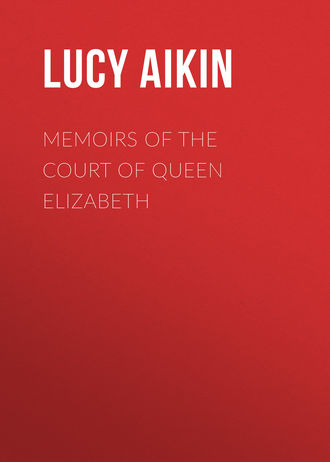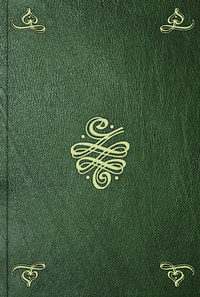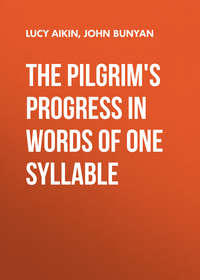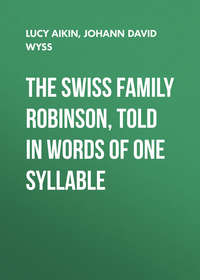 полная версия
полная версияMemoirs of the Court of Queen Elizabeth
A violent quarrel between Mary and the countess of Shrewsbury had naturally resulted from the conduct of this furious woman; and Mary, whose passions, whether fierce or tender, easily hurried her beyond the bounds of decency and of prudence, gratified her resentment at once against the countess and the queen by addressing to Elizabeth a letter which could never be forgiven or forgotten. In this piece, much too gross for insertion in the present work, she professes to comply with the request of her royal sister, by acquainting her very exactly with all the evil of every kind that the countess of Shrewsbury had ever spoken of her majesty in her hearing. She then proceeds to repeat or invent all that the most venomous malice could devise against the character of Elizabeth: as, that she had conferred her favors on a nameless person (probably Leicester) to whom she had promised marriage; on the duke of Anjou, on Simier, on Hatton and others; that the latter was quite disgusted with her fondness; that she was generous to none but these favorites, &c. That her conceit of her beauty was such, that no flattery could be too gross for her to swallow; and that this folly was the theme of ridicule to all her courtiers, who would often pretend that their eyes were unable to sustain the radiance of her countenance,—a trait, by the way, which stands on other and better authority than this infamous letter. That her temper was so furious that it was dreadful to attend upon her;—that she had broken the finger of one lady, and afterwards pretended to the courtiers that it was done by the fall of a chandelier, and that she had cut another across the hand with a knife;—stories very probably not entirely unfounded in fact, since we find the earl of Huntingdon complaining, in a letter still preserved in the British Museum, that the queen, on some quarrel, had pinched his wife "very sorely." That she interfered in an arbitrary manner with the marriage of one of the countess of Shrewsbury's daughters, and wanted to engross the disposal of all the heiresses in the kingdom;—in which charge there was also some truth. This insulting epistle concluded with assurances of the extreme anxiety of the writer to see a good understanding restored between herself and Elizabeth.
Meantime, the most alarming manifestations of the inveterate hostility of the persecuted papists against the queen, continued to agitate the minds of a people who loved and honored her; and who anticipated with well founded horror the succession of another Mary, which seemed inevitable in the event of her death. A book was written by a Romish priest, exhorting the female attendants of her majesty to emulate the merit and glory of Judith by inflicting on her the fate of Holophernes. Dr. Allen, afterwards cardinal, published a work to justify and recommend the murder of a heretic prince; and by this piece a gentleman of the name of Parry was confirmed, it is said, in the black design which he had several times revolved in his mind, but relinquished as often from misgivings of conscience.
In the history of this person there are some circumstances very remarkable. He was a man of considerable learning, but, being vicious and needy, had some years before this time committed a robbery, for which he had received the royal pardon. Afterwards he went abroad, and was reconciled to the Romish church, though employed at the same time by the ministers of Elizabeth to give intelligence respecting the English exiles, whom he often recommended to pardon or favor, and sometimes apparently with success. Returning home, he gained access to the queen, who admitted him to several private interviews; and he afterwards declared, that fearing he might be tempted to put in act the bloody purpose which perpetually haunted his mind, he always left his dagger at home when he went to wait upon her. On these occasions he apprized her majesty of the existence of many designs against her life, and endeavoured, with great earnestness and plainness of speech, to convince her of the cruelty and impolicy of those laws against the papists which had rendered them her deadly foes: but finding his arguments thrown away upon the queen, he afterwards procured a seat in parliament, where he was the sole opponent of a severe act passed against the Jesuits. On account of the freedom with which he expressed himself on this occasion, he was for a few days imprisoned.
Soon after a gentleman of the family of Nevil, induced it is said by the hope of obtaining as his reward the honors and lands of the rebel earl of Westmorland lately dead, disclosed to the government a plot for assassinating the queen, in which he affirmed that Parry had engaged his concurrence. Parry confessed in prison that he had long deliberated on the means of effectually serving his church, and it appeared that he had come to the decision that the assassination of the queen's greatest subject might be lawful: a letter was also found upon him from cardinal Como, expressing approbation of some design which he had communicated to him. On this evidence he was capitally condemned; but to the last he strongly denied that the cardinal's letter, couched in general terms, referred to any attempt on the queen's person, or that he had ever entertained the design charged upon him. Unlike all the other martyrs of popery at this time, he died,—not avowing and glorying in the crime charged upon him,—but earnestly protesting his innocence, his loyalty, his warm attachment to her majesty. An account of his life was published immediately afterwards by the queen's printer, written in a style of the utmost virulence, and filled with tales of his monstrous wickedness which have much the air of violent calumnies.
Parry was well known to lord Burleigh, with whom he had corresponded for several years; and the circumstance of his being brought by him to the presence of the queen, proves that this minister was far from regarding him either as the low, the infamous, or the desperate wretch that he is here represented. That he had sometimes imagined the death of the queen, he seems to have acknowledged; but most probably he had never so far conquered the dictates of loyalty and conscience as to have laid any plan for her destruction, or even to have resolved upon hazarding the attempt. The case therefore was one in which mercy and even justice seem to have required the remission of a harsh and hasty sentence; but the panic terror which had now seized the queen, the ministry, the parliament, and the nation, would have sufficed to overpower the pleadings of the generous virtues in hearts of nobler mould than those of Elizabeth, of Leicester, or of Walsingham.
Nevil, the accuser of Parry, far from gaining any reward, was detained prisoner in the Tower certainly till the year 1588, and whether he even then obtained his liberation does not appear.
The severe enactments of the new parliament against papists, which included a total prohibition of every exercise of the rites of their religion, so affected the mind of Philip Howard earl of Arundel, already exasperated by the personal hardships to which the suspicions of her majesty and the hostility of her ministers had exposed him, that he formed the resolution of banishing himself for ever from his native land. Having secretly prepared every thing for his departure, he put his whole case upon record in a letter addressed to her majesty, and left behind at his house in London. This piece ought, as it appears, to have excited in the breast of his sovereign sentiments of regret and compunction rather than of indignation. The writer complains, that without any offence given on his part, or even objected against him by her majesty, he had long since fallen into her disfavor, as by her "bitter speeches" had become publicly known; so that he was generally accounted, "nay in a manner pointed at," as one whom her majesty least favored, and in most disgrace as a person whom she did deeply suspect and especially mislike." That after he had continued for some months under this cloud, he had been called sundry times by her command before the council, where charges had been brought against him, some of them ridiculously trifling, others incredible, all so untrue, that even his greatest enemies could not, after his answers were made, reproach him with any disloyal thought;—yet was he in the end ordered to keep his house. That his enemies still continued to pursue him with interrogatories, and continued his restraint; and that even after the last examination had failed to produce any thing against him, he was still kept fifteen weeks longer in the same state, though accused of nothing. That when, either his enemies being ashamed to pursue these proceedings further, or her majesty being prevailed upon by his friends to put an end to them, he had at length recovered his liberty, he had been led to meditate on the fates of his three unfortunate ancestors, all circumvented by their enemies, and two of them (the earl of Surry his grandfather and the duke of Norfolk his father) brought for slight causes to an untimely end. And having weighed their cases with what had just befallen himself, he concluded that it might well be his lot to succeed them in fortune as in place. His foes were strong to overthrow, he weak to defend himself, since innocence, he had found, was no protection; her majesty being "easily drawn to an ill opinion of" his "ancestry;" and moreover, he had been "charged by the council to be of the religion which was accounted odious and dangerous to her estate." "Lastly," he adds, "but principally, I weighed in what miserable doubtful case my soul had remained if my life had been taken, as it was not unlikely, in my former troubles. For I protest, the greatest burden that rested on my conscience at that time was, because I had not lived according to the prescript rule of that which I undoubtedly believed." &c.
The earl had actually embarked at a small port in Sussex, when, his project having been betrayed to the government by the mercenary villany of the master of the vessel and of one of his own servants, orders were issued for his detention, and he was brought back in custody and committed to the Tower. The letter just quoted was then produced against him; it was declared to reflect on the justice of the country; and for the double offence of having written it and of attempting to quit the kingdom without license, he underwent a long imprisonment, and was arbitrarily sentenced to a fine of one thousand pounds, which he proved his inability to pay. The barbarous tyranny which held his body in thraldom, served at the same time to rivet more strongly upon his mind the fetters of that stern superstition which had gained dominion over him. The more he endured for his religion, the more awful and important did it appear in his eyes; while in proportion to the severity and tediousness of his sufferings from without, the scenery within became continually more cheerless and terrific; and learning to dread in a future world the prolonged operation of that principle of cruelty under which he groaned in this, he sought to avert its everlasting action by practising upon himself the expiatory rigors of asceticism. The sequel of his melancholy history we shall have occasion to contemplate hereafter.
Thomas Percy earl of Northumberland, brother to that earl who had suffered death on account of the Northern rebellion,—by his participation in which he had himself also incurred a fine, though afterwards remitted,—was naturally exposed at this juncture to vehement suspicions. After some examinations before the council, cause was found for his committal to the Tower; and here, according to the iniquitous practice of the age, he remained for a considerable time without being brought to trial. At length the public was informed that another prisoner on a like account having been put to the torture to force disclosures, had revealed matters against the earl of Northumberland amounting to treason, on which account he had thought fit to anticipate the sentence of the law by shooting himself through the heart. That the earl was really the author of his own death was indeed proved before a coroner's jury by abundant and unexceptionable testimony, as well as by his deliberate precautions for making his lands descend to his son, and his indignant declaration that the queen, on whom he bestowed a most opprobrious epithet, should never have his estate; though it may still bear a doubt whether a consciousness of guilt, despair of obtaining justice, or merely the misery of an indefinite captivity, were the motive of the rash act: but the catholics, actuated by the true spirit of party, added without scruple the death of this nobleman to the "foul and midnight murders" perpetrated within these gloomy walls.
Meantime the opposition to popery, which had now become the reigning principle of English policy, was to be maintained on other ground, and with other weapons than those with which an inquisitorial high-commission, or a fierce system of penal enactments, had armed the hands of religious intolerance, political jealousy, or private animosity; and all the more generous and adventurous spirits prepared with alacrity to draw the sword in the noble cause of Belgian independence, against the united tyranny and bigotry of the detestable Philip II.
The death of that patriot hero William prince of Orange by the hand of a fanatical assassin, had plunged his country in distress and dismay, and the States-general had again made an earnest tender of their sovereignty to Elizabeth. She once more declined it, from the same motives of caution and anxiety to avoid the imputation of ambitious encroachment on the rights of neighbouring princes, which had formerly determined her. But more than ever aware how closely her own safety and welfare were connected with the successful resistance of these provinces, she now consented to send over an army to their succour, and to grant them supplies of money; in consideration of which several cautionary towns were put into her hands. Of these, Flushing was one; and Elizabeth gratified at once the protestant zeal of Philip Sidney and his aspirations after military glory, by appointing him its governor. It was in November 1585 that he took possession of his charge.
Meanwhile the earl of Leicester, whose haughty and grasping spirit led him to covet distinction and authority in every line, was eagerly soliciting the supreme command of this important armament; and in spite of the general mediocrity of his talents and his very slight experience in the art of war, his partial mistress had the weakness to indulge him in this unreasonable and ill-advised pretension. The title of general of the queen's auxiliaries in Holland was conferred upon him, and with it a command over the whole English navy paramount to that of the lord-high-admiral himself.
He landed at Flushing, and was received first by its governor and afterwards by the States of Holland and Zealand with the highest honors, and with the most magnificent festivities which it was in their power to exhibit. A splendid band of youthful nobility followed in his train:—the foremost of them all was his stepson Robert earl of Essex, now in his 19th year, who had already made his appearance at court, and experienced from her majesty a reception which clearly prognosticated, to such as were conversant in the ways of the court, the height of favor to which he was predestined.
It was highly characteristic of the jealous haughtiness of Elizabeth's temper, that the extraordinary honors lavished by the States upon Leicester instantly awakened her utmost indignation. She regarded them as too high for any subject, even for him who enjoyed the first place in her royal favor, whom she had invested with an amplitude of authority quite unexampled, and who represented herself in the council of the States-general.
She expressed her anger in a tone which made both Leicester and the Belgians tremble; and the explanations and humble submissions of both parties were found scarcely sufficient to appease her. At the same time, the incapacity and misconduct of Leicester as a commander were daily becoming more conspicuous and offensive in the eyes of the Dutch authorities; and the most serious evils would immediately have ensued, but for the prudence, the magnanimity, the conciliating behaviour, and the strenuous exertions, by which his admirable nephew labored unceasingly to remedy his vices and cover his deficiencies.
The brilliant valor of the English troops, and particularly of the young nobility and gentry who led them on, was conspicuous in every encounter; but the want of a chief able to cope with that accomplished general the prince of Parma, precluded them from effecting any important object. Philip Sidney distinguished himself by a well-conducted surprise of the town of Axel, and received in reward among a number of others the honor of knighthood from the hands of his uncle. Afterwards, having made an attack with the horse under his command on a reinforcement which the enemy was attempting to throw into Zutphen, a hot action ensued, in which though the advantage remained with the English, it was dearly purchased by the blood of their gallant leader, who received a shot above the knee, which after sixteen days of acute suffering brought his valuable life to its termination.
Thus perished at the early age of thirty-two sir Philip Sidney, the pride and pattern of his time, the theme of song, the favorite of English story. The beautiful anecdote of his resigning to the dying soldier the draught of water with which he was about to quench his thirst as he rode faint and bleeding from the fatal field, is told to every child, and inspires a love and reverence for his name which never ceases to cling about the hearts of his countrymen. He is regarded as the most perfect example which English history affords of the preux Chevalier; and is named in parallel with the spotless and fearless Bayard the glory of Frenchmen, whom he excelled in all the accomplishments of peace as much as the other exceeded him in the number and splendor of his military achievements.
The demonstrations of grief for his loss, and the honors paid to his memory, went far beyond all former example, and appeared to exceed what belonged to a private citizen. The court went into mourning for him, and his remains received a magnificent funeral in St. Paul's, the United Provinces having in vain requested permission to inter him at their own expense, with the promise that he should have as fair a tomb as any prince in Christendom. Elizabeth always remembered him with affection and regret. Cambridge and Oxford published three volumes of "Lachrymæ" on the melancholy event. Spenser in verse, and Camden in prose, commemorated and deplored their friend and patron. A crowd of humbler contemporaries pressed emulously forward to offer up their mite of panegyric and lamentation; and it would be endless to enumerate the poets and other writers of later times, who have celebrated in various forms the name of Sidney. Foreigners of the highest distinction claimed a share in the general sentiment. Du Plessis Mornay condoled with Walsingham on the loss of his incomparable son-in-law in terms of the deepest sorrow. Count Hohenlo passionately bewailed his friend and fellow-soldier, to whose representations and intercessions he had sacrificed his just indignation against the proceedings of Leicester. Even the hard heart of Philip II. was touched by the untimely fate of his godson, though slain in bearing arms against him.
We are told that on the next tilt-day after the last wife of the earl of Leicester had borne him a son, Sidney appeared with a shield on which was the word "Speravi" dashed through. This anecdote,—if indeed the allusion of the motto be rightly explained, which it is difficult to believe,—would serve to show how publicly he had been regarded, both by himself and others, as the heir of his all-powerful uncle. The death of this child, on which occasion adulatory verses were produced by the university of Cambridge, restored Sidney, the year before his death, to this brilliant expectancy; and it cannot reasonably be doubted, that the academic honors paid to his memory were, like the court-mourning, a homage to the power of the living rather than the virtues of the dead. But though he should be judged to have owed to his connexion with a royal favorite much of his contemporary celebrity, and even in some measure his enduring fame, no candid estimator will suffer himself to be hurried, under an idea of correcting the former partiality of fortune, into the clear injustice of denying to this accomplished character a just title to the esteem and admiration of posterity. On the contrary, it will be considered, that the very circumstances which rendered him so early conspicuous, would also expose him to the shafts of malice and envy; and that if his spirit had not been in reality noble, and his conduct irreproachable, it would have exceeded all the power of Leicester to shield the reputation of his nephew against attacks similar to those from which he had found it impracticable to defend his own.
Philip Sidney was educated, by the cares of a wise and excellent father, in the purest and most elevated moral principles and in the best learning of the age. A letter of advice addressed to him by this exemplary parent at the age of twelve, fully exemplifies both the laudable solicitude of sir Henry respecting his future character, and the soundness of his views and maxims: in the character of his son, as advancing to manhood, he saw his hopes exceeded and his prayers fulfilled. Nothing could be more correct than his conduct, more laudable than his pursuits, while on his travels; young as he was, he merited the friendship of Hubert Languet. He also gained just and high reputation for the manner in which he acquitted himself of an embassy to the protestant princes of Germany, though somewhat of the ostentation and family pride of a Dudley was apparent in the port which he thought it necessary to assume on the occasion.
After his return, he commenced the life of a courtier; and that indiscriminate thirst for glory which was in some measure the foible of his character, led him into an ostentatious profusion, which, by involving his affairs, rendered it necessary for him to solicit the pecuniary favors of her majesty, and to earn them by some acts of adulation unworthy of his spirit: for all these, however, he made large amends by his noble letter against the French marriage. He afterwards took up, with a zeal and ability highly honorable to his heart and his head, the defence of his father, accused, but finally acquitted, of some stretches of power as lord-deputy of Ireland. This business involved him in disputes with the earl of Ormond, his father's enemy, who seems to have generously overlooked provocations which might have led to more serious consequences, in consideration of the filial feelings of his youthful adversary.
These indications of a bold and forward spirit appear however to have somewhat injured him in the mind of her majesty; his advancement by no means kept pace either with his wishes or his wants; and a subsequent quarrel with the earl of Oxford,—in which he refused to make the concessions required by the queen, reminding her at the same time that it had been her father's policy, and ought to be hers, rather to countenance the gentry against the arrogance of the great nobles than the contrary,—sent him in disgust from court. Retiring to Wilton, the seat of his brother-in-law the earl of Pembroke, he composed the Arcadia. This work he never revised or completed;
it was published after his death, probably contrary to his orders; and it is of a kind long since obsolete. Under all these disadvantages, however, though faulty in plan and as a whole tedious, this romance has been found to exhibit extensive learning, a poetical cast of imagination, nice discrimination of character, and, what is far more, a fervor of eloquence in the cause of virtue, a heroism of sentiment and purity of thought, which stamp it for the offspring of a noble mind,—which evince that the workman was superior to his work.
But the world re-absorbed him; and baffled at court he meditated, in correspondence with one of his favorite mottoes,—"Aut viam inveniam aut faciam,"—to join one of the almost piratical expeditions of Drake against the Spanish settlements. Perhaps he might then be diverted from his design by the strong and kind warning of his true friend Languet, "to beware lest the thirst of lucre should creep into a mind which had hitherto admitted nothing but the love of truth and an anxiety to deserve well of all men." After the death of this monitor, however, he engaged in a second scheme of this very questionable nature, and was only prevented from embarking by the arrival of the queen's peremptory orders for his return to court and that of Fulke Greville who accompanied him.





